"Being a misogynist isn't inevitable – it's preventable": Mayor of London Sadiq Khan on his plans to tackle violence against women
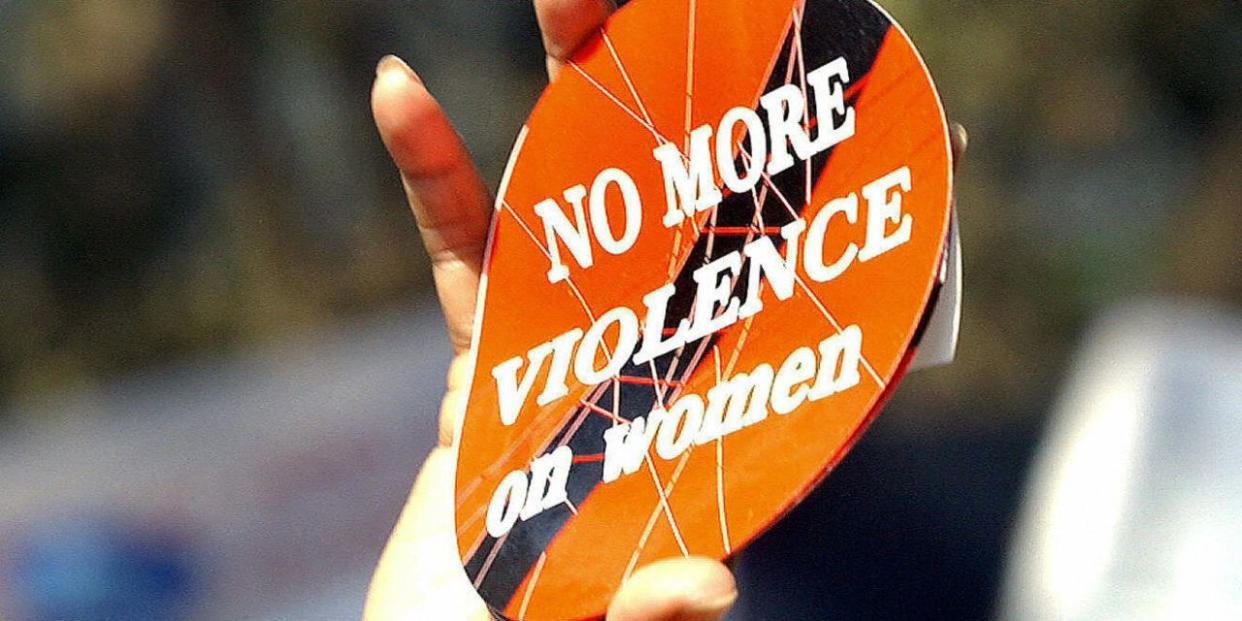
For nearly every woman I know, the pattern is so familiar as to be almost automatic. Whenever each of us hugs a female friend goodbye at a restaurant, pub or club, we all say the same thing: “Text me when you get home”.
Since we were teenagers, we’ve known to wear a long coat with a short skirt; to walk home along brightly lit streets; to look over our shoulders on the bus, the train, the tube. These shouldn’t be behaviours that come so naturally to us. But when a woman is killed by a man every three days in the UK, they are not a choice – they are a necessity.
The Mayor of London, Sadiq Khan, knows this. “What we’ve got across the country is an epidemic of violence against women and girls,” he tells me, on the same day that he is announcing a new, 10-point plan to tackle the issue, pledging that London will go “further than any city has ever gone in the UK. No one is doing anything as comprehensive as what we’re announcing today.”
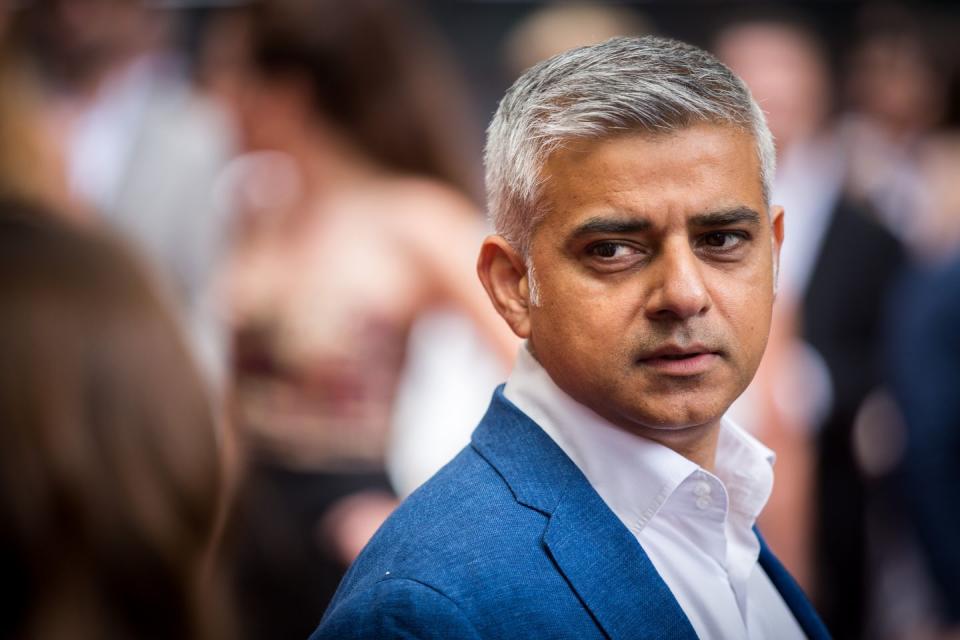
That 10-point plan includes supporting victims and survivors of violence with free legal advice and safe accommodation; a major rollout of activity and education to tackle misogyny in schools; driving up detection and conviction rates for domestic abuse, rape and stalking; and improving the safety of public spaces.
“We’re already funding independent domestic violence advisors, we’re already funding independent sexual violence advisors. But there’s a gap,” says Khan. “We’ve recognised that – even though we’ve made big improvements.” One of those improvements has been announcing a new trial of Women Safety Audits, involving 60 women from different parts of the capital, who have been recruited and trained to conduct research in their communities around safety. They’ll provide feedback on, for example, how transport is designed, or which areas need a higher police presence.
“When it comes to designing the public realm, I think, for a variety of reasons, the designers tend to be blokes,” explains Khan, “whose experiences are very different to the experiences of women and girls. I think that at the design phase, we should be taking on board the views of women and girls when it comes to how well lit a street is, which bus stops should have CCTV, and which transport routes should have more staff present.”
It’s a bold, wide-ranging and admirable plan – in theory. However, the root of the issue isn’t really how our public spaces are designed, it’s why men are violent towards women in the first place. Isn’t something like the Women Safety Audits putting the onus on women to protect themselves – as has always been the case in the past?
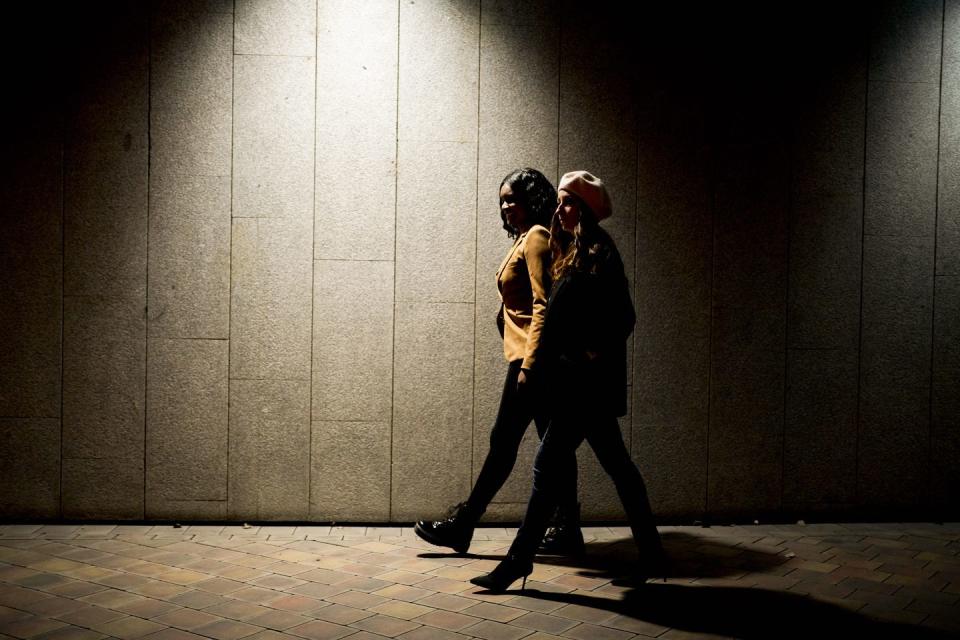
Khan says emphatically that this is an attitude he’s dedicated to changing. “One of the things that I found wrong when I first became Mayor was the idea that the responsibility of the issue should fall on just women and girls,” he says. “We need to treat this as a public health issue. You treat the infection, the perpetrator; you stop it spreading with GPS tagging; and then you stop it occurring in the first place, at schools. We’re not just talking about women and girls. We're talking about boys and men. That's the problem.”
I ask Khan how much of a priority it is for him to treat the problem at source: young boys are accessing radical messaging from an increasingly early age (studies show that 10 per cent have watched porn by the age of just nine) which can affect their treatment of women in later life. “I don’t think, you know, being a misogynist is inevitable, it’s preventable,” he says. “And so, going into schools is really, really important.”
“I’ve been concerned by the teachers I’ve spoken to who have told me stories about how boys watch Andrew Tate, and have been brainwashed to think that's the way to treat girls. Or they see pornography, and think that’s the way to treat girls. The way we make our boys resilient to that sort of brainwashing, that sort of bad behaviour, is by making sure we teach them about healthy relationships. You’ve got to start early.”
For now, Khan is pledging to support secondary schools, giving teachers the education they need to better inform their students. A toolkit is online now, which includes all the information teachers need to lead workshops, discussions and activities on teaching the next generation of men about building positive and healthy relationships with women and girls. “Teachers are under-resourced and overstretched, and the national curriculum is quite stringent. So we're going to make it as easy as possible for schools. So far, we’ve trained more than 200 teachers at 100 schools, and we’re going to continue to roll that out,” says Khan.
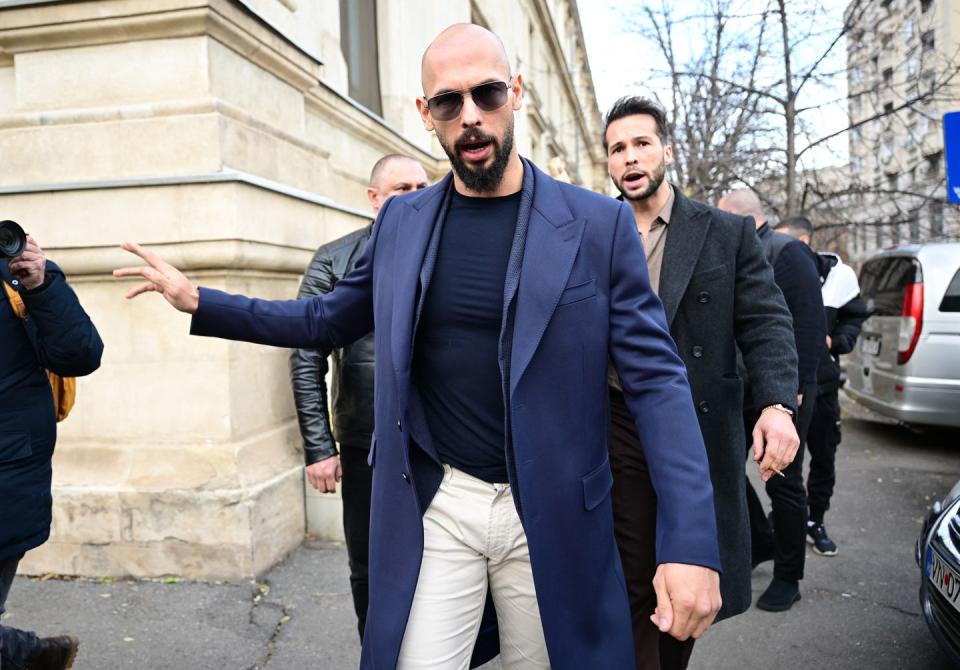
One of the 10-point plan’s most ambitious aims is to work with the Met – not just on catching and convicting offenders and improving public safety, but to reform policing altogether, to ensure the right officers are in place to support women. After the tragic abduction, rape and murder of Sarah Everard by the police officer Wayne Couzens, who had an extensive history of alleged sexual offences, women felt more unsafe than ever – particularly when further examples of sexist behaviour in the force came to light.
A subsequent report by Dame Louise Casey found the Met to be institutionally racist, misogynistic and homophobic. “The Met can now no longer presume that it has the permission of the people of London to police them,” Casey said at the time. How can women expect Khan to deliver on his promises, when confidence in the police is so low?
“This man [Wayne Couzens] wasn’t an isolated case. This isn’t a case of one rotten apple. It’s a culture that exists in the police service across the country, that needs to be addressed,” he says. “That’s why I was so keen for the Dame Louise report on the police service. I’m really pleased we’ve got new Commissioner [Sir Mark Rowley, who was appointed in September 2022] who wants to ensure that police are anti-misogynistic. So when a complaint’s made against, for example, flashing [as was made against Wayne Couzens prior to his attack on Everard] it’s not trivialised, but taken seriously.”
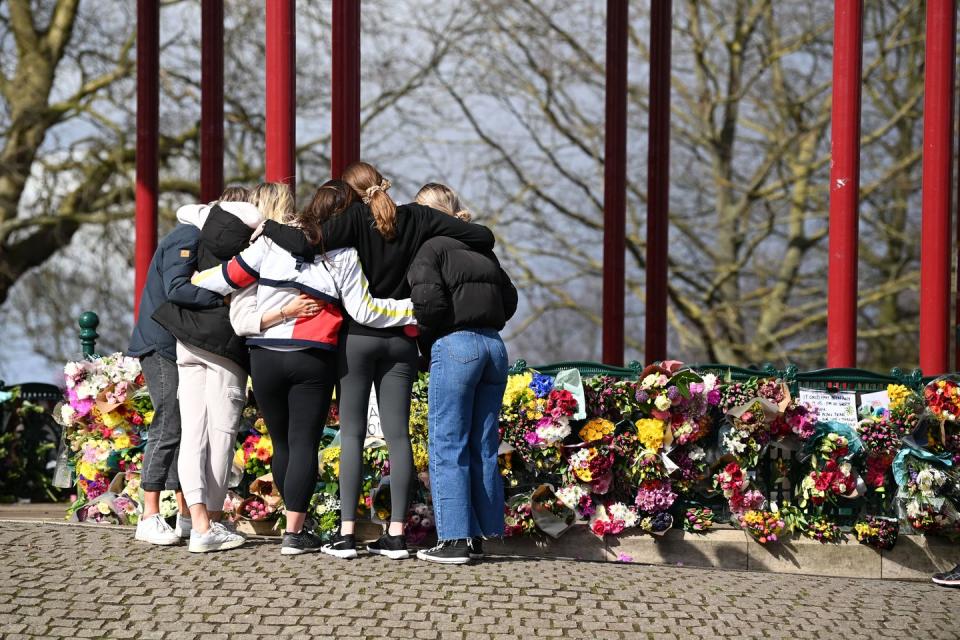
“We’ve also set up The London Policing Board, which assists the Mayor in holding the Commissioner to account on behalf of Londoners. My job is to support the police, but also to challenge them. I think for too long, the way the police have policed has been done in a way that’s discreet and hidden away.”
Khan seems ambitious, yet realistic when he explains his plans, should he be re-elected as Mayor in May. He wants to understand and listen to women’s views – and use them to make the capital a safer, fairer place for everyone. “Look, I've never had anyone touching me up. No one’s photographing me. No one behaves in a lecherous way towards me,” he says, in a candid moment. “But by speaking to women and taking into account their views, we can change our society for the better.” A future that, no doubt for all of us, cannot come too soon.
The Mayor of London's 10-point plan: in full
The 10 pledges included in Sadiq Khan’s manifesto are:
1/ Funding a pilot of free, independent legal advice to survivors of rape and serious sexual offences. The new legal advice will help victims to ensure that the correct parameters are put in place and victims aren’t handing over unnecessary data, while providing a host of more general advice about legal processes, asserting victims’ rights, and ensuring all public agencies are complying with their legal obligations.
2/ Tackling misogyny in schools. The Mayor is already funding the development of a toolkit available for teachers to use in all secondary schools to ensure that boys recognise, call out and tackle sexist and misogynistic behaviour. Khan will roll out a major expansion of his work in schools, providing funding to organisations that provide outreach and training to school children directly, empowering young people to confidently call out and help stamp out misogyny among their own peer groups. The funding will go beyond the £1 million already allocated to providing toolkits in schools.
3/ Delivering safe accommodation for survivors of domestic abuse. The Mayor’s pan-London Domestic Abuse Safe Accommodation Homes Programme (DASAHP) will deliver new and improved safe, affordable accommodation for survivors of domestic abuse, as well as better access to specialist support. Thousands of Londoners experience domestic abuse every year, and this programme will provide additional accommodation options for those who have nowhere else to stay and who need specialist support to rebuild their lives following abuse. The Mayor is committing around £10 million in funding.
4/ Continue to work with the Met Commissioner to reform policing, so that women have confidence that the right people are working in a reformed Met police, as well as ensuring those officers are equipped and ready to crack down on perpetrators of violence against women and girls.
5/ Invest in work to support victims and organisations that support them, while also investing in efforts to stop perpetrators from reoffending.
6/ Build on London’s ground-breaking work in tagging domestic abuse offenders, and expanding it to tagging those convicted of non-domestic abuse-related stalking offences.
7/ Work with the Met to drive up detection and conviction rates on domestic abuse, rape and stalking.
8/ Continue working with the Met and partners to improve the safety of women in public spaces, including driving even more organisations to sign up to the Women’s Night Safety Charter.
9/ Develop a new VAWG criminal justice partnership initiative, bringing together the Met Police and the CPS to improve case file quality in order to radically improve the speed and success of bringing perpetrators to justice.
10/ Continue to support London’s Victims’ Commissioner, a role that the Mayor is proud to have created, in the crucial work of standing up for London’s victims of crime.
You Might Also Like


